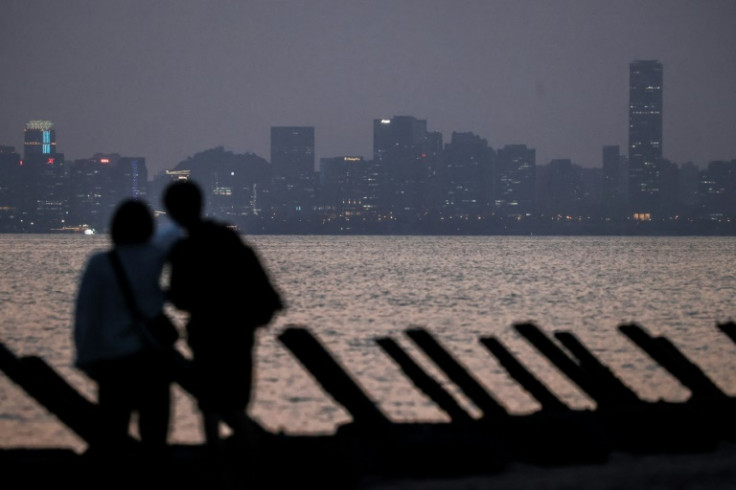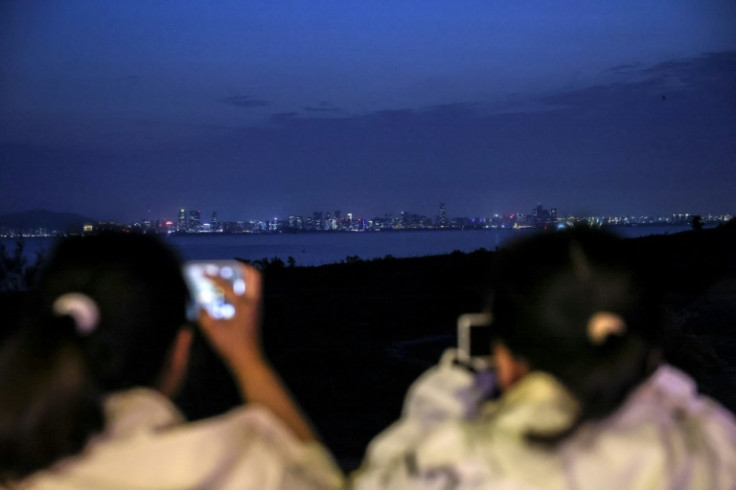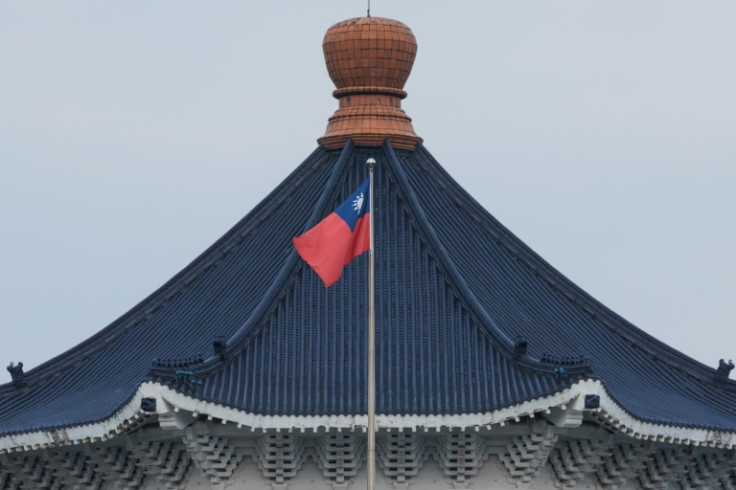For Taiwan Shoppers, China's Malls Only A Ferry Ride Away

With suitcases and packages stuffed with food, alcohol and construction materials, Taiwanese shoppers make their way towards a ferry in the Chinese city of Xiamen bound for the Taipei-administered island of Kinmen.
Passing through immigration, the travellers cannot miss a sign declaring: "One family on two sides of the strait, working together to fulfil our dreams."
China claims Taiwan as part of its territory and has vowed to seize the self-ruled island, by force if necessary.
In the months leading up to Monday's inauguration of Taiwan's president-elect Lai Ching-te, who Beijing has branded a "dangerous separatist", Chinese coast guard ships have made frequent appearances around the waters of Kinmen.
Yet the deepening rift between Beijing and Taipei, and the threat of a conflict if China fulfils its promise to take Taiwan, appears to be the last thing on the minds of the Taiwanese passengers.
More than 700,000 people made the journey between Kinmen and China by ferry last year, the vast majority of them Taiwanese, and many of them seeking a bargain in the bustling markets of Xiamen.
Huang Chuang-yuan, who runs a seafood restaurant on Kinmen, is one of the many regulars travelling back and forth between the island and Xiamen.
"China is a big market, they have more products and more variety of things -- and things are much cheaper," Huang, 57, told AFP on Friday after arriving back at Kinmen with his haul.
"But you need to watch the products very closely. Some are good but others not."
One of Taiwan's many outlying islands, Kinmen is located just five kilometres (three miles) -- and a world apart from the gleaming towers and upscale shopping malls populating Xiamen.
Before passengers can board the ferry in the Chinese city for the half-hour journey across the sliver of water separating it from Kinmen, they put their luggage through X-ray machines and then pass through immigration.
People push airport-style trolleys loaded with suitcases and large packages up a ramp and onto the ferry before taking their seats.
Eight ferries run each day between the two sides, with the staff removing China's national flag from the vessel's staff when the boat moves closer toward Kinmen.
Chef Ji De-wei said he travels back and forth to Xiamen every month to stock up on products.
"It's super convenient to get there and it's only a 30 minute ferry," the 45-year-old told AFP as three of his employees loaded his purchases onto a small truck.
Ji recently opened a restaurant in Kinmen but instead of sourcing materials locally, he went to Xiamen.
"Things are not cheaper but there is more choice," he said.
Some passengers like Gail Lin had been in China for the sites, not the shopping.
In China "things are very modern," she gushed, adding that in Kinmen "things are a bit outdated."
Meng-hsuan Lin, 28, hoped more Chinese citizens could visit Taiwan, including Kinmen, after Lai takes office on Monday.
"Kinmen is the safest place. Nothing can happen" she said.


© Copyright AFP 2024. All rights reserved.





















